How to build a LAMP environment in centos7.2
1. Installation of apache, php and mysql
Installation order: apache/mysql and finally install php. The order of the first two does not matter.
1. Installationapache
Requires server networking
Installation:yum install -y httpd
Run: /bin/systemctl start httpd.service
After executing the run command, you will not see the effect. At this time, enter the check apache service status command to check whether the service has been started:
View status: service httpd status
## Apache Start service: systemctl start httpd
ApacheStop service: systemctl stop httpd
## To test whether the apache service is started normally, enter the public address of the cloud server in our local browser Networkip, I am taking 118.89.32.6 as an example
apache is opened normally;
2. Install mysql
rpm -ivh mysql-community-release-el7-5.noarch.rpm
yum install mysql-community-server After successful installation, restart
mysql service
service mysqld restart
Initial installationmysql is the root account and does not have a password How to set a password
:## Enter
to enter the mysql database mysql>
set password for 'root'@'localhost' = password('mypasswd'); mysql>
exit## If an error is reported: can't find any matching row in the user table Execute the following statement
## mysql> grant all privileges on testDB.* to 'test'@' 1.1.1.1'identified by 'yourpassword';
This time the prompt is executed successfully, but don’t forget to execute it again:mysql> FLUSH PRIVILEGES; Make changes in time Write grant table
Remote authorization connectionmysql
mysql>GRANT ALL PRIVILEGES ON *.* TO 'root'@' %' IDENTIFIED BY 'The database password you want to set
' WITH GRANT OPTION; mysql>FLUSH PRIVILEGES;
annotation:
1.RPM: is RPM Package Manager(RPMSoftware package manager),A packaging and installation tool for downloading packages from the Internet, which is included in some Linux distribution. It generates files with .RPM extension. Similar to Dpkg.
Corresponding command:
In Terminal, the basic installation instructions are as follows:
rpm -i xv-3.10a-13. i386.rpm
If your connection speed is fast enough, you can also install the application software directly from the network. You only need to add the appropriate URL# before the file name of the software. ##path.
As a software package management tool, RPM manages the data of all RPM program components that have been installed on the system . We can also use RPM to uninstall related applications.
rpm-e xv
Commonly used parameters of RPMalso include:
-vh:Display installation progress; -qpl
: List the file information in theRPM software package;
- qpi: List the description information of the RPM software package;
-qf: Find the specified file Which RPM software package it belongs to;
-Va: Verify all RPM Software package, find missing files;
-qa: Find corresponding files, such asrpm -qa mysql 2.
YUM:Yum (full name is Yellow dog Updater, Modified
) Is aShell in Fedora and RedHat and CentOS Front-end package manager. Based on RPM package management, it can automatically download RPM packages from the designated server and install them. It can automatically handle dependencies and install all dependent software packages at once, without having to do it again and again. Download and install. Corresponding command:
Installation software(Take foo-x.x.x.rpm
as an example)
:yum install foo-x.x.x.rpm Removal software:yum remove foo-x.x.x.rpmoryum erase foo-x.x.x.rpm Upgrade software: yum upgrade foo or yum update fo Query information:yum info foo Search software (to include the foo field For example):yum search foo Display package dependencies:yum deplist foo check-update Check for updateable packages 3. WGET: wget is a free tool that automatically downloads files from the Internet and supports HTTP、HTTPS、FTP The three most common TCP/IP Protocol Download, and can use HTTP proxy. "wget" This name comes from "World Wide Web" and "get" # The combination of ##. The so-called automatic download means that wget can continue to execute in the background after the user exits the system until the download task is completed. If the above two lines of commands are executed successfully and complete is displayed, then is OK Use Navicat and the like to manage Mysqldatabase ##3. Install php Step-by-step installation: Download php (online installation , convenient and trouble-free): Wait for the installation to be completed Yum install -y php- MySQL php-gd libjpeg* php-imap php-ldap php-odbc php-pear php-xml php-xmlrpc php-mbstring php-mcrypt php-bcmath php-mhash libmcrypt## Test whether php is installed normally, enter php echo “ XXX”, if could not open input file echo is displayed, it means the installation has been successful, or you can write a php file and execute it 二、 apache、php##2.1Configuration Use the httpd -V apachehttpd.conf The directory where the file is located: etc/httpd/conf/ directory. Enter the directory, cd /etc/httpd/conf Content to be modified: #Load PHPProcessing moduleLoadModule php5_module modules/libphp5.so#Add and other suffix processing AddType application/x-httpd-php .php2 DirectoryIndex index.html DirectoryIndex index.php index.html3 Documentroot = "/var/www" Directory /var/www After modifying all configurations, click the esc key and hold down shift+; enter the bottom line mode and enter wq Save and exit. 2.2Configurationphp.ini 1, input php --iniCommand to view php.iniFile path: The picture above is no longer here, too motor. 2, find the place with the most extension, remove the preceding ; PHP supports mysql, and must be specified during configuration --with-mysql The value, if it was not configured during previous installation, needs to be reconfigured, compiled and installed ;extension=php_mysql.dll To usephpmyadmin Or mysqli function is opened, and the value of --with-mysqli must be specified when configuring. If it was not configured during previous installation, it is required Reconfigure, compile, install ;extension=php_mysqli.dll Requires PHP supportpng, jpg, gif, etc.(phpcmsV9must)Open ;extension=php_gd2.dll Large character set,Support multiple character sets Open the conversion ;extension=php_mbstring.dll php5DefaultThe time is eight hours different from Beijing time(Eight hours less) Why?? The PHP5 series version has a new time zone setting. The default is Greenwich Mean Time, which is exactly the same as the East 88 hours,find ;date.timezone = will; Remove it and modify it to date.timezone = PRC Except for errors of type E_NOTICE(Notice )Do not report, others will report,Searcherror_reporting = E_ALL Change Intoerror_reporting = E_ALL & ~E_NOTICE 3, findextension_dir Remove the semicolon in front and change it to extension_dir = “Your php installation directory/ext” Php Check the installation directory: 4, enter rpm -ql php in linux ViewphpInstallation directory: ## After modifying all configurationsRestartapache: Or: 3. One-click installation: (convenient and easy ^_^) ## xshell,Enter the xftp interface: will Drag the local installation package into the remote server root directory: xshell window and enter the root directory: cd /root : The remaining configuration steps are the same as above. The specific directories are as follows: After that, you can use xftp Upload your project to the root directory of the website.
-e Execute silently
-t Ignore errors
-R[minutes] Set waiting time
-y Automatic response yes
--skip-broken ignore dependency issues
--nogpgcheck ignoreGPGVerification
clearn Clear all
clean packages Clear temporary package files (files under /var/cache/yum )
clearn headers clearrpmHeader file
clean oldheaders Clear the oldrpmHeader file
deplist List package dependencies
list Installable and updateableRPMPackage
list installed Installed package
list extras Already installed and not in the resource library Package
info Installable and updateableRPMPackage information
info installed Information of installed packages(-qa similar parameters)
install[RPM Package] Installation package
localinstall Install local RPMPackage
update[RPMPackage] Update package
upgrade Upgrade system
search[Keywords] Search package
provides[Keywords] Search for a specific package file name
reinstall[RPMPackage ] Reinstall the package
repolist Display the configuration of the resource library
resolvedep Specify dependencies
remove[RPMPackage] Uninstall package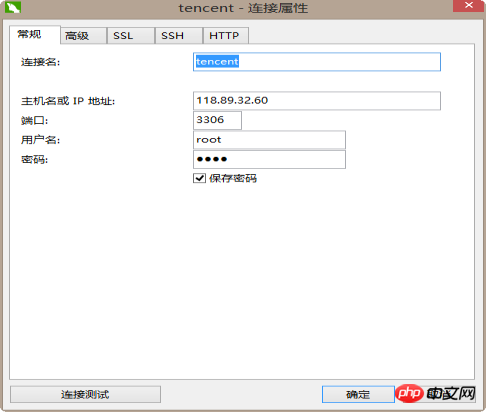
Decompression: tar -zxvf mirror
## Install gcc: yum install -y gcc gcc+ libxml2-devel
Compilation: ./configure --prefix=/usr/local/php7 --enable-fpm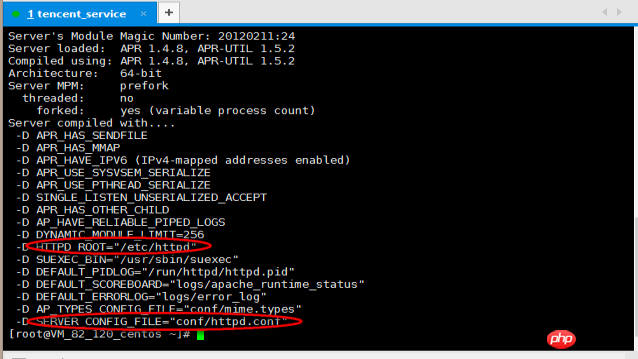 As shown in the red circle, apache
As shown in the red circle, apache 1
1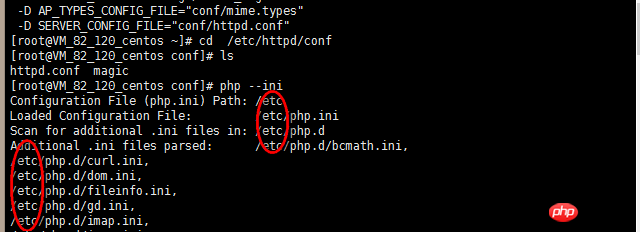

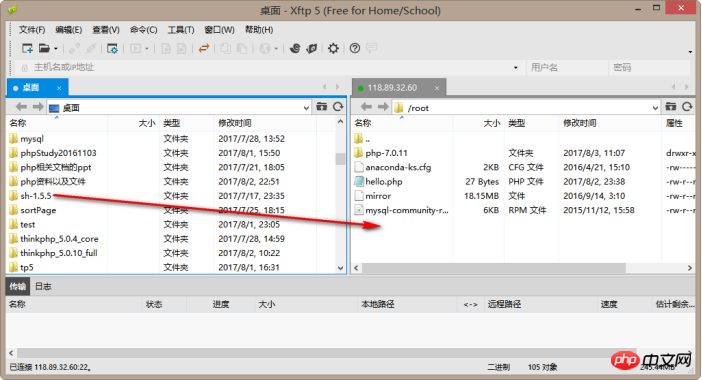
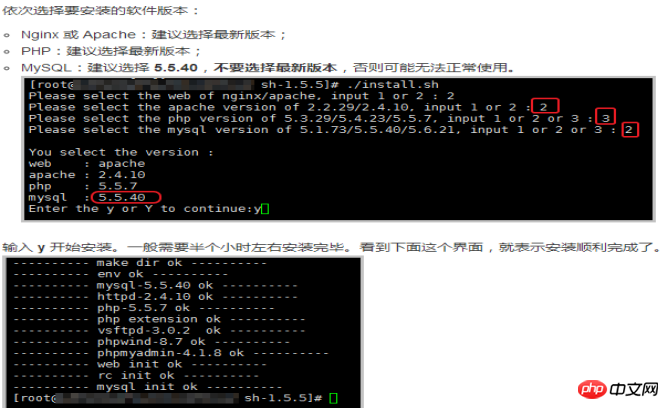
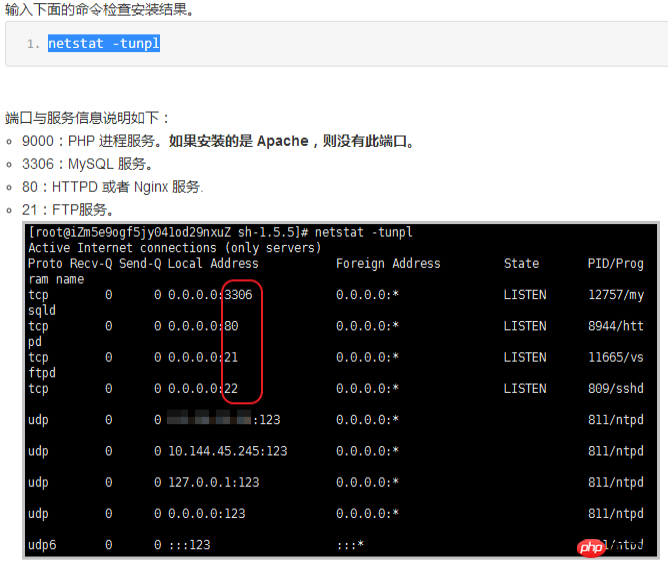
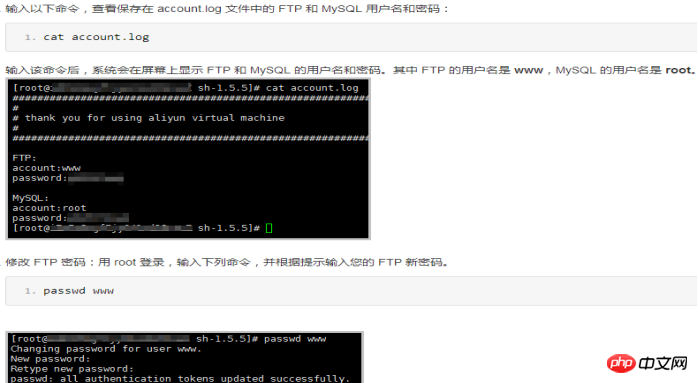
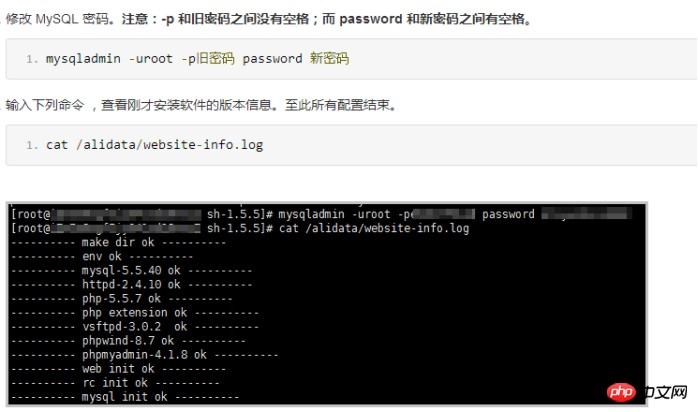
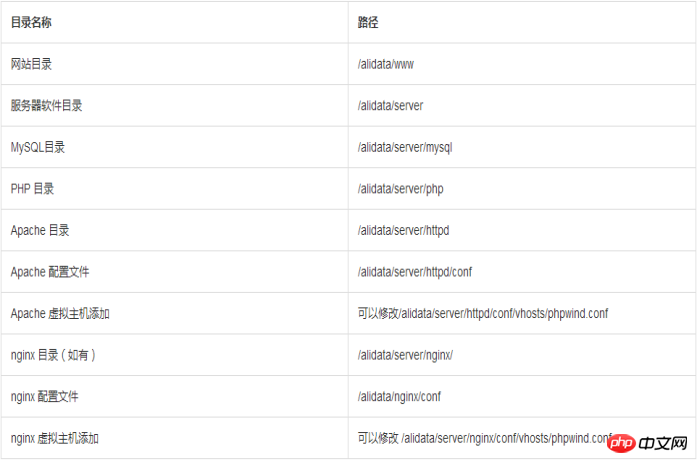
The above is the detailed content of How to build a LAMP environment in centos7.2. For more information, please follow other related articles on the PHP Chinese website!

Hot AI Tools

Undresser.AI Undress
AI-powered app for creating realistic nude photos

AI Clothes Remover
Online AI tool for removing clothes from photos.

Undress AI Tool
Undress images for free

Clothoff.io
AI clothes remover

AI Hentai Generator
Generate AI Hentai for free.

Hot Article

Hot Tools

Notepad++7.3.1
Easy-to-use and free code editor

SublimeText3 Chinese version
Chinese version, very easy to use

Zend Studio 13.0.1
Powerful PHP integrated development environment

Dreamweaver CS6
Visual web development tools

SublimeText3 Mac version
God-level code editing software (SublimeText3)

Hot Topics
 1376
1376
 52
52
 Unable to boot into Windows recovery environment
Feb 19, 2024 pm 11:12 PM
Unable to boot into Windows recovery environment
Feb 19, 2024 pm 11:12 PM
Windows Recovery Environment (WinRE) is an environment used to repair Windows operating system errors. After entering WinRE, you can perform system restore, factory reset, uninstall updates, etc. If you are unable to boot into WinRE, this article will guide you through fixes to resolve the issue. Unable to boot into the Windows Recovery Environment If you cannot boot into the Windows Recovery Environment, use the fixes provided below: Check the status of the Windows Recovery Environment Use other methods to enter the Windows Recovery Environment Did you accidentally delete the Windows Recovery Partition? Perform an in-place upgrade or clean installation of Windows below, we have explained all these fixes in detail. 1] Check Wi
 What are the differences between Python and Anaconda?
Sep 06, 2023 pm 08:37 PM
What are the differences between Python and Anaconda?
Sep 06, 2023 pm 08:37 PM
In this article, we will learn about the differences between Python and Anaconda. What is Python? Python is an open source language that places great emphasis on making the code easy to read and understand by indenting lines and providing whitespace. Python's flexibility and ease of use make it ideal for a variety of applications, including but not limited to scientific computing, artificial intelligence, and data science, as well as creating and developing online applications. When Python is tested, it is immediately translated into machine language because it is an interpreted language. Some languages, such as C++, require compilation to be understood. Proficiency in Python is an important advantage because it is very easy to understand, develop, execute and read. This makes Python
 11 Ways to Set Environment Variables on Windows 3
Sep 15, 2023 pm 12:21 PM
11 Ways to Set Environment Variables on Windows 3
Sep 15, 2023 pm 12:21 PM
Setting environment variables on Windows 11 can help you customize your system, run scripts, and configure applications. In this guide, we'll discuss three methods along with step-by-step instructions so you can configure your system to your liking. There are three types of environment variables System environment variables – Global variables are the lowest priority and are accessible to all users and applications on Windows and are typically used to define system-wide settings. User Environment Variables – Higher priority, these variables only apply to the current user and process running under that account, and are set by the user or application running under that account. Process environment variables – have the highest priority, they are temporary and apply to the current process and its sub-processes, providing the program
 What are the PHP integrated environment packages?
Jul 24, 2023 am 09:36 AM
What are the PHP integrated environment packages?
Jul 24, 2023 am 09:36 AM
PHP integrated environment packages include: 1. PhpStorm, a powerful PHP integrated environment; 2. Eclipse, an open source integrated development environment; 3. Visual Studio Code, a lightweight open source code editor; 4. Sublime Text, a A popular text editor, widely used in various programming languages; 5. NetBeans, an integrated development environment developed by the Apache Software Foundation; 6. Zend Studio, an integrated development environment designed for PHP developers.
 Common problems and solutions for Laravel environment configuration file .env
Mar 10, 2024 pm 12:51 PM
Common problems and solutions for Laravel environment configuration file .env
Mar 10, 2024 pm 12:51 PM
Common problems and solutions for Laravel environment configuration file .env When using the Laravel framework to develop projects, the environment configuration file .env is very important. It contains key configuration information of the project, such as database connection information, application keys, etc. However, sometimes there are some common problems when configuring the .env file. This article will introduce these problems and provide solutions, and attach specific code examples for reference. Problem 1: Unable to read the .env file when we have configured the .env file
 Easily delete the Conda environment: Tips for efficiently cleaning up useless environments
Jan 04, 2024 am 08:15 AM
Easily delete the Conda environment: Tips for efficiently cleaning up useless environments
Jan 04, 2024 am 08:15 AM
Deleting Conda Environments with One Click: Tips for Quickly Cleaning Up Useless Environments With the rapid development of data science and machine learning, the need to use Python for development and analysis is becoming stronger and stronger. Conda, as a popular Python package manager and environment management tool, is widely used in project development and environment configuration. However, over time, we often leave many useless Conda environments on the computer, which not only wastes disk space, but may also lead to environment clutter and unnecessary trouble. This article will introduce
 How to configure the go language environment
Jan 06, 2021 am 11:37 AM
How to configure the go language environment
Jan 06, 2021 am 11:37 AM
Go language environment configuration method: 1. Download the go language compiler and double-click to run the installation program; 2. Accept the license agreement and click next; 3. Set the installation directory and click OK; 4. After the installation is completed, change the go installation directory Just add the bin directory to the environment variable.
 Explore the similarities and differences between pipenv environments and virtual environments
Jan 16, 2024 am 08:50 AM
Explore the similarities and differences between pipenv environments and virtual environments
Jan 16, 2024 am 08:50 AM
The difference and connection between the pipenv environment and the virtual environment requires specific code examples. With the increasing popularity of Python, more and more developers are using virtual environments in Python projects to isolate the dependent libraries of different projects. The virtual environment can ensure that the Python libraries and their versions that the project depends on are properly managed to avoid various conflicts and version inconsistencies. However, in the past, using virtual environments required third-party libraries such as virtualenv and virtualenvwrapper. soon




